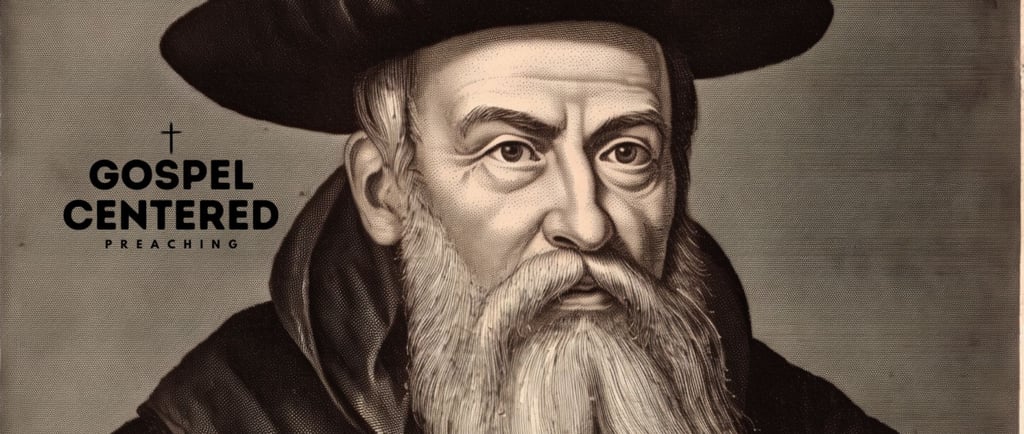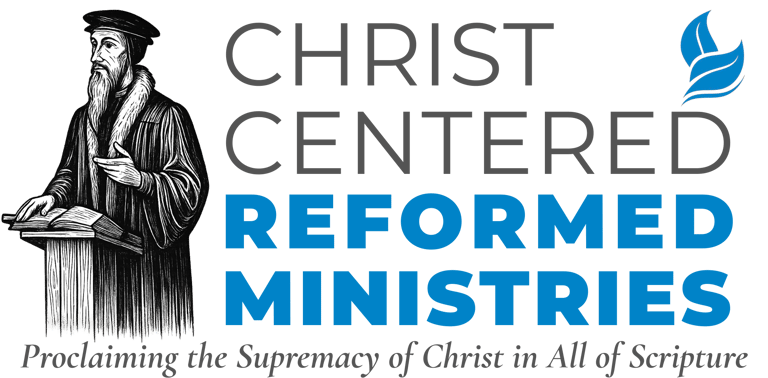Zacharias Ursinus: A Pillar of Reformed Thought and Legacy
Dive into the life of Zacharias Ursinus, a pivotal figure in the Reformation era, as we explore his theological contributions and personal struggles. Drawing from authoritative sources, this article offers a nuanced look at the man behind the Heidelberg Catechism.
BIOGRAPHY
Justin Hoke
10/21/20233 min read


"What is your only comfort in life and in death?" That I am not my own, but belong—body and soul, in life and in death—to my faithful Savior, Jesus Christ. He has fully paid for all my sins with his precious blood, and has set me free from the tyranny of the devil. He also watches over me in such a way that not a hair can fall from my head without the will of my Father in heaven; in fact, all things must work together for my salvation. Because I belong to him, Christ, by his Holy Spirit, assures me of eternal life and makes me wholeheartedly willing and ready from now on to live for him. ~ Q&A 1 of the Heidelberg Catechism
In the annals of Christian history, few figures shine as brightly as Zacharias Ursinus. Born in 1534 in Breslau, a city now known as Wrocław in Poland, Ursinus would grow to become a cornerstone of Reformed theology. His early life, marked by a thirst for knowledge, saw him enrolling at Wittenberg University at the tender age of fifteen. Here, he would board with Philipp Melanchthon, the esteemed successor of Martin Luther, for seven years. Melanchthon, recognizing the young scholar's intellectual prowess and spiritual depth, took him under his wing, commending him to mentors across Europe.
Ursinus' academic journey was nothing short of illustrious. From Wittenberg, he ventured to study under Reformation scholars in Strasbourg, Basel, Lausanne, and Geneva. His travels to Lyons and Orleans further honed his expertise in Hebrew. But it wasn't just academic prowess that defined Ursinus; it was also his unwavering conviction. Upon his return to Breslau, he penned a pamphlet on the sacraments, a work that would ignite controversy. The Lutherans, feeling threatened by his Reformed leanings, vehemently opposed him, eventually driving him from the city.
Yet, adversity often paves the way for opportunity. Ursinus found refuge in Zurich, where he befriended Peter Martyr, the renowned Italian Reformer. This friendship would prove pivotal. In 1561, upon Martyr's recommendation, Prince Frederick III appointed Ursinus as a professor in the Collegium Sapientiae at Heidelberg. It was here, in the hallowed halls of Heidelberg, that Ursinus, alongside Caspar Olevianus, would pen the Heidelberg Catechism in 1563. This document, a testament to Ursinus' theological depth and clarity, would become a foundational text for Reformed churches worldwide.
The Heidelberg Catechism wasn't just another theological document; it was a beacon of hope, a guide for believers navigating the tumultuous waters of faith. Ursinus, with his meticulous attention to detail and profound understanding of Scripture, crafted a catechism that addressed the core tenets of Christianity. But his work didn't go unchallenged. Lutherans, ever wary of his Reformed leanings, raised objections. Yet, Ursinus, with the same conviction that had driven him from Breslau, undertook the defense of the Catechism, ensuring its enduring legacy.
Beyond the Catechism, Ursinus' contributions to the church were manifold. He prepared a new liturgy, championed a discipline modelled after Geneva, and wrote extensively on the Lutheran Book of Concord. His teachings, always rooted in Scripture and marked by a deep reverence for God, influenced generations of theologians.
However, the winds of change are unpredictable. The death of Prince Frederick III in 1576 marked a turning point. Lutheran influences began to dominate, and Ursinus, ever the stalwart defender of Reformed theology, found himself at odds with the establishment. In 1578, he moved to Neustadt, where he would spend the final years of his life, continuing his theological pursuits until his death in 1583.
The legacy of Zacharias Ursinus is profound. His works, published posthumously between 1587 and 1589, and later in a more comprehensive edition in 1612, continue to inspire theologians and believers alike. But it isn't just his writings that endure; it's the spirit of unwavering conviction, of deep reverence for God's Word, and of a relentless pursuit of truth.
In reflecting on Ursinus' life, one is reminded of the enduring power of faith. Here was a man, driven from his home, opposed at every turn, yet undeterred in his mission. His life, marked by both triumphs and trials, serves as a testament to the transformative power of the Gospel. Through his writings, teachings, and the Heidelberg Catechism, Ursinus has left an indelible mark on the Christian landscape.
In the end, the story of Zacharias Ursinus is not just a tale of theological prowess; it's a story of resilience, of conviction, and of unwavering faith. It's a reminder that even in the face of adversity, with God's grace, one can leave an enduring legacy. And in Ursinus' case, that legacy continues to shine brightly, guiding believers on their journey of faith.
For Further Study:
The Heidelberg Catechism: A Study Guide by G. I. Williamson
The Heidelberg Catechism, 450th Anniversary Edition
The Commentary of Zacharias Ursinus on the Heidelberg Catechism
